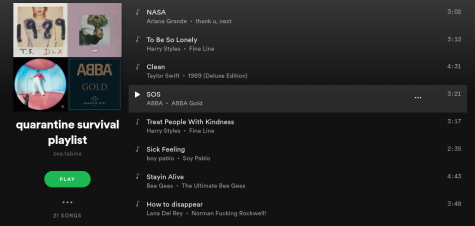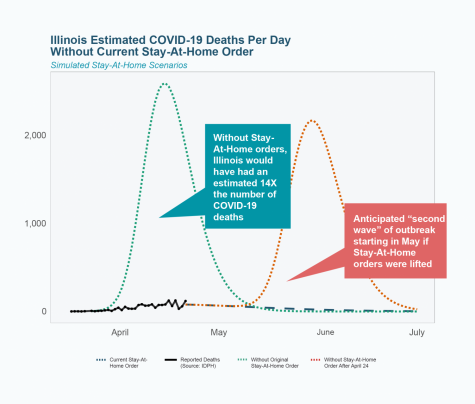New Illinois law requires consent curriculum
Photo by Douglas P Perkins
This year, Illinois schools will be required to teach what qualifies as legal consent in sex education for grades six through 12.
The law, passed in August, went into effect Jan. 1. It requires an “age-appropriate” discussion of the legal requirements for consent in a physical relationship. The law will impact many Illinois middle schools and could affect Illinois high schools, according to Naperville North health teacher Deanna Nesci.
“Covering consent in middle school allows sixth, seventh and eighth graders to practice their communication and resistance skills and build a foundation around setting boundaries,” Nesci said. “This is definitely necessary, especially with the recent shift in our culture.”
The law passed amid the backdrop of the #MeToo movement, which has inspired people around the world to speak out about sexual assault and harassment. The movement has brought sexual assault allegations and stories told by survivors into the public eye, with a number of high-profile cases. Illinois has taken other recent steps toward confronting the issue, including passing a law requiring annual workplace sexual harassment training for businesses. Sinikka Mondini, District 203’s executive director of communications, says the consent education law will alter the district’s health curriculum.
“Our administration is currently taking the necessary steps to implement appropriate [consent] curriculum in conjunction with our current curriculum,” Mondini said in an email.
The legislation specifies the consent topics teachers must cover. The curriculum must include consent’s definition, that lack of resistance is not equivalent to consent, and that consent can be withdrawn at any point, in addition to five other requirements.
Molly Morton, an Naperville North junior, thinks the law will have an impact on Illinois but not necessarily in the way that some expect it to.
“In a perfect world, this would be the ideal solution, but I think the impact will take a little longer to go into effect than people think it will,” Morton said.
There is also a requirement for classes to outline the circumstances that make sexual activity illegal. This includes having sexual relations with someone under 17 or a person in a position of trust or authority having relations with an individual under 18. The law notes that parents can choose to remove their child from sexual education as a whole, in which case consent is not taught in school.
“Naperville high schools have been a little ahead of the curve on consent by having it in our high school curriculum for a while, but it’s time for everyone to catch up — which is what this law is trying to achieve,” Nesci said.

Reyah is a senior at North and is excited to take on the role of Editor-in-Chief in her third year writing for The North Star. This year, she hopes to...
















